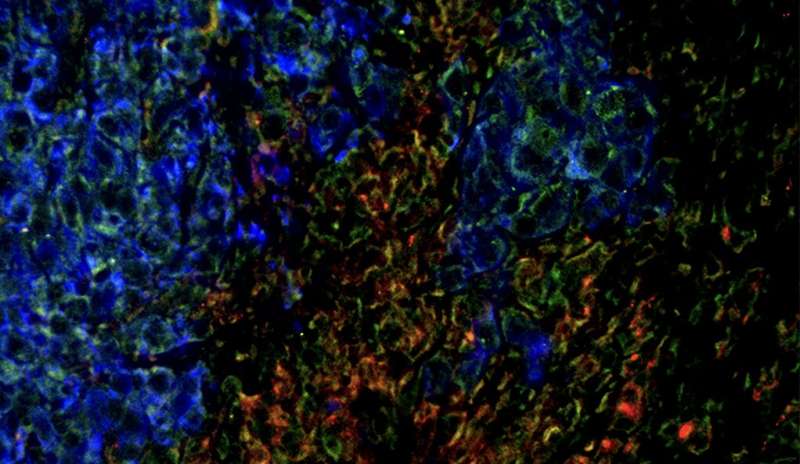New technique may improve detection and treatment of advanced brain cancer

In a new study, Yale Cancer Center scientists have demonstrated a powerful method to analyze how tumor cells are altered as they metastasize, or spread, to the brain. The research, published in the journal Cell Reports, may eventually improve early diagnosis and treatment of metastatic brain cancer, whose incidence is climbing and whose treatments are typically limited.
"Once tumors metastasize in the brain, most drug therapies are no longer effective," said senior author Don Nguyen, associate professor of pathology at Yale Cancer Center. "There's a big question whether that's because those drugs are not getting into the brain, which is a difficult place for drugs to penetrate, or because additional mechanisms are at work."
Emily Wingrove, a graduate student in his lab and co-lead author on the paper, took on this question with "xenograft" models of metastasis, in which human tumor cells were transferred into mice lacking an immune system. Wingrove and co-lead author Zongzhi Liu developed a system for extremely precise RNA sequencing of xenograft tissue samples to examine gene expression both in the human tumor cells and in the mouse cells. Gene expression drives the production of the proteins that shape a cell for its specific role in the body, such as a lung or muscle cell.
Experiments began in mice with a human lung cancer cell line that quickly metastasizes to the brain. The researchers analyzed how gene expression changed as the tumors began to grow and compared that to the expression of healthy brain tissue.
Overall, the scientists discovered a striking set of alterations in gene expression. "We're seeing changes in thousands of genes induced by the tumor microenvironment," said Wingrove. "I would never have imagined that so many genes change just when you grow cells in a different context."
After validating some of these findings by examining human tissue samples, the researchers expanded the project by analyzing other xenograft models of brain metastatic melanoma and breast cancer.
The study also provides many clues for identifying new biomarkers for early detection of brain metastasis. Today, brain cancer is typically already at an advanced stage when it is detected clinically. Nguyen's lab is also looking at potential opportunities to use existing drugs against some of the targets suggested by the research.
More information: Emily Wingrove et al. Transcriptomic Hallmarks of Tumor Plasticity and Stromal Interactions in Brain Metastasis, Cell Reports (2019). DOI: 10.1016/j.celrep.2019.03.085



















